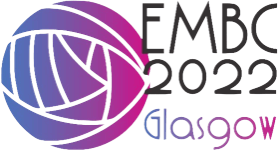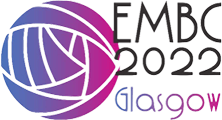Theme 8: Biorobotics and Biomechanics
Brain-Computer Interface Neurotechnology for Control, Rehabilitation, Brain Assessment and Mapping
Slobodan Tanackovic, QTec Medical Engineering GmbH
Dean Krusienski, Virginia Commonwealth University, USA
Kai J Miller, Mayo Clinic, USA
Jose del R.Millan, The University of Texas at Austin, USA
Dora Hermes, Mayo Clinic, USA
Javier Mauricio Antelis Ortiz, Tecnológico de Monterey, Mexico
Nuri Ince, University of Houston, USA
The Brain-Computer Interface (BCI) research area is a thriving and rapidly expanding field. BCIs have been developed during the last years for people with severe disabilities to improve their quality of life. However, BCI applications have recently been extended to different research areas, such as rapid functional mapping on the contical level, virtual reality and rehabilitation & therapy after stroke. The workshop will discuss prerequisites to successfully perform both invasive and non-invasive BCI experiments and discuss progress in relevant medical domains. Live demonstrations of BCI control will help attendees understand the technology. Many studies over the past decade have shown that ECoG activity in the high gamma band is a reliable indicator of local task-related cortical activity, and could this complement existing methods for functional mapping. Further highlights of the workshop are new approaches of semiautomatic mapping of the sensorimotor cortex using somatosensory evoked potentials and cortico-cortical evoked potentials for brain mapping in intraoperative scenarios. The workshop will also describe techniques for direct- brain stimulation in Parkinson patients to reduce tremor and to improve treatment opportunities.
Attendees will get insights into state-of-the-art hardware and software for BCI research enabling participants to run their own experiments. Advantages and disadvantages of dry and wet bio-signal sensors will be discussed as well as differences between invasive and non-invasive BCI applications. Participants will be able to understand the most commonly used methodological approaches (auditory, visual, vibrotactile P300, SSVEP, moto imagery) underlying the design of BCIs and will have the opportunity to operate BCI based medical systems for neurorehabilitation, communication and consciousness assessment. The speakers of this workshop provide a competent mix between neurosurgery, neurology, scientific and technical expertise.
Bionics+: User Centred Design and Usability of Bionic Devices
Christopher James, University of Warwick, UK
Kianush Nazarpur, University of Edinburgh, UK
Helen Dawes, University of Exeter, UK
Rory O’Connor, University of Leeds, UK
Rylie Green, Imperial College, UK
Bionics+ is a UK EPSRC funded research network plus and will stimulate and support a cohesive activity towards next-generation bionic technologies to co-create user-centred systems, methods and care models that are fit for purpose. Bionics+ takes place with four central tenets in mind: A) a user-centric approach; B) security in our data (cybersecurity); C) inclusive of clinical and industry inputs; D) promoting smart manufacturing processes. Bionics+ deals with four major application areas: implants, prostheses, artificial organs and exoskeletons/wearables, and seven cross-cutting capabilities: data processing and AI, bioelectronics, materials, control systems, secure communications, sensing and stimulation. Taken together these will allow for cross-fertilisation of ideas across the network such that Bionics+ will focus on ambitious, collaborative and transformative research and the formulation of longer-term strategy.
This Special Session will outline the aims and ambitions of the network and introduce the network team, as well as providing an opportunity to submit ideas, discuss areas of interest within the Bionics field and form new partnerships.


